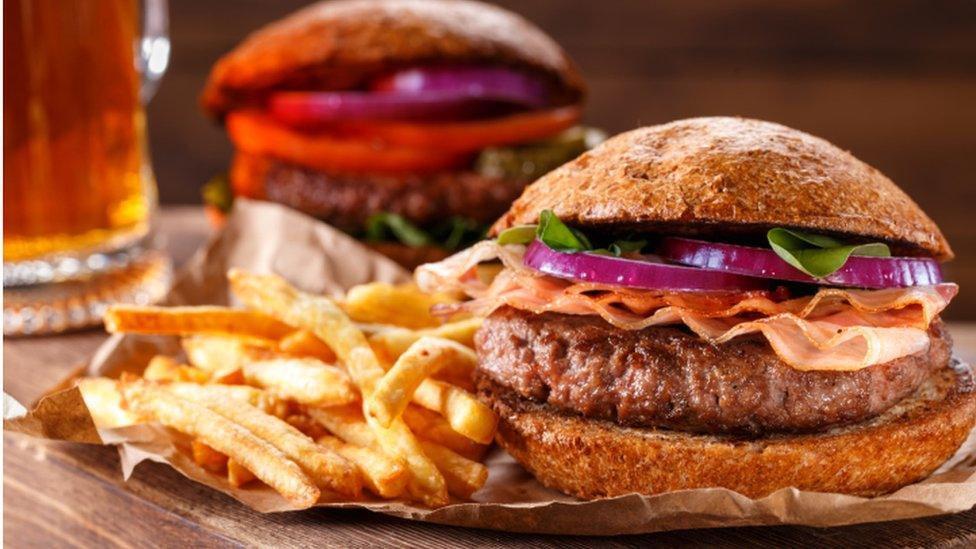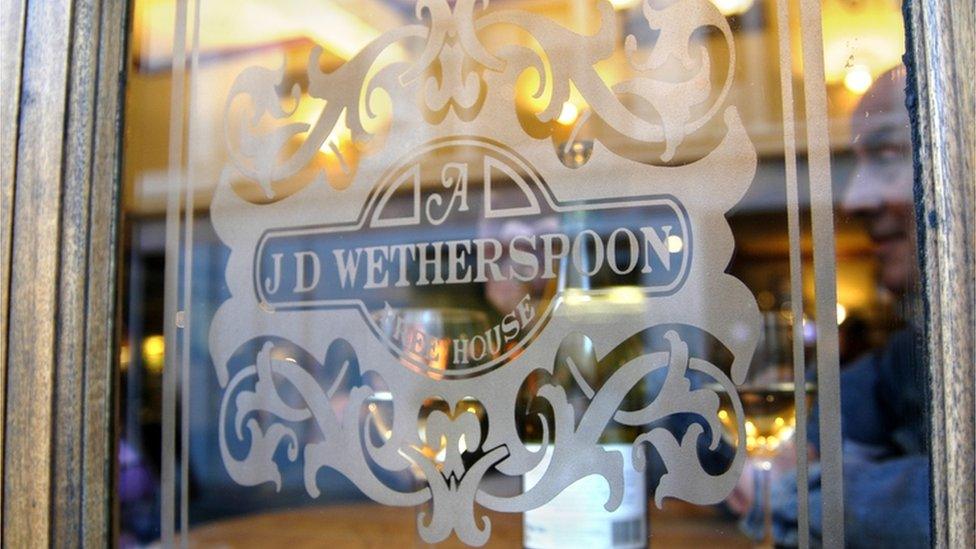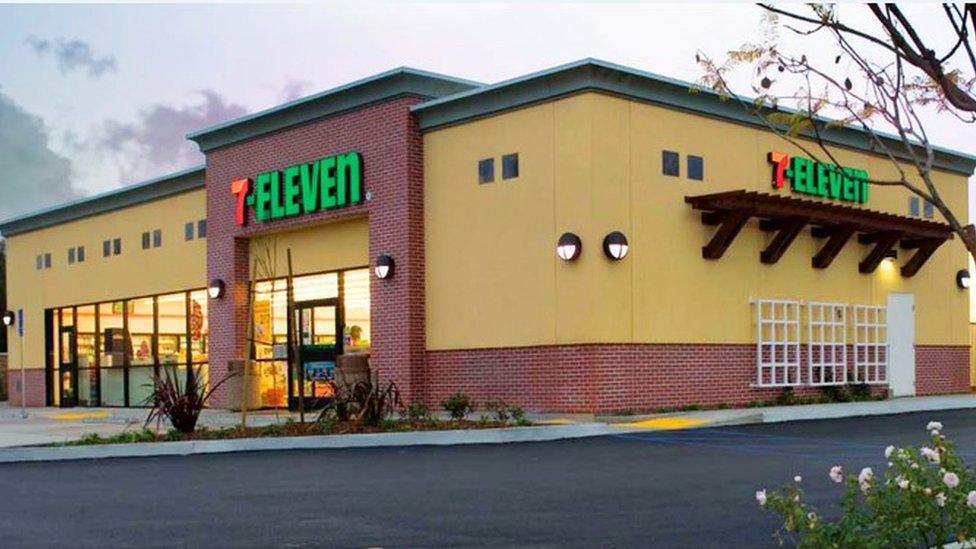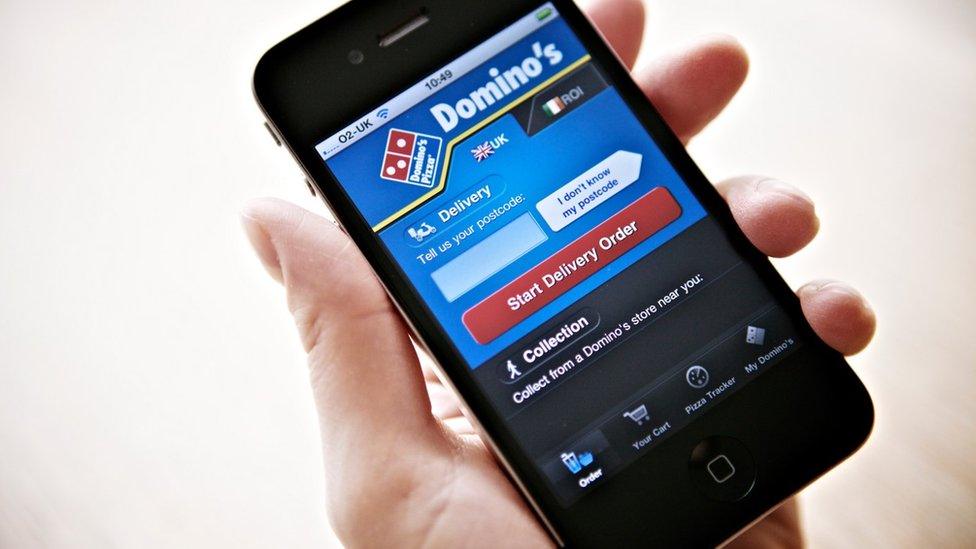The restaurant trade: extra fries with that?
- Published

It's December. First day of the Advent calendar. Shops have just had Black Friday and Cyber Monday, and now the delivery firms are facing a mighty logistical challenge.
It's now getting to the busiest, most lucrative time of year for restaurants as well.
Like the shops are realising, deep discounting may not be the way to go. The voucher and daily deals culture, which took off at the back end of last decade, accompanied by the financial crunch, has slowed to half of its peak.
That's according to Peter Backman, a restaurant industry analyst at Horizons consultancy in London. He was speaking to me for the latest edition of Business Scotland, on BBC Radio Scotland, all about the foodservice trade.
He observed that restaurateurs have shifted to more competitive pricing for main dishes, with margins made through selling the extras - a sauce on your steak, extra chips on the side and maybe some olives.
Tony Singh, Edinburgh chef and now consultant to others in the dining out trade, says the discount vouchers were attractive because they helped fill tables at slow times.
But he reflects now that it was only good for the voucher companies, and undermined the restaurant brand, by making it appear that the product was inferior.
Unstuffy
Customer spending habits have shifted towards eating out a bit more, but eating more cheaply, says Peter Backman. That's either by shifting downmarket to a different restaurant, or by going back to the same place as before, but getting cheaper options.
Part of this has been driven by the big corporates. They have developed 'casual dining' to draw people in with an informal, unstuffy experience.
It's often family-friendly, where you might have to do some of the table service yourself and you won't face a daunting wine list or a catalogue of cutlery at your place setting.
Casual dining has squeezed fast food, and drawn in more upmarket eateries.
It's also squeezed the independent restaurant business. According to Horizons consultancy, the indy share has fallen in the past tumultuous decade from 56% to 47% of the British foodservice market.
Beer battered
South African-based Nando's, along with Five Guys burgers, are among those pushing into leisure mall dining, or at the travel hubs which are drawing in restaurant chains to waylay footfall.
Some of the biggest growth into foodservice has come from those whose original intention was to sell you something to drink.

Wetherspoon's, Enterprise Inns and Marston's - all British-based and British-focused - are among the biggest and fastest-growing foodservice companies outside North America, according to the regular NRN/Euromonitor analysis. It helps offset the decline of traditional pub-going and beer-drinking.
Costa Coffee, owned by Whitbread, is number six in the rankings. with more than £1bn in sales last year, and 2,900 outlets.
On-the-go eaterie
Japan's companies dominate the ratings, led by convenience store 7-Eleven. At the end of last year, it had more than 54,000 outlets offering grab-and-go food and, in its home market, bento boxes. Turnover last year was more than £14bn.
Asia-Pacific, led by China, is now by far the biggest market for foodservice, with sales of more than £700bn in the sector, and 39% growth projected in the second half of this decade.
It has the big US-based chains, but Asian-based chains are taking a lot of market share.

Yet it's not just the British pub chains that are up there with the big Asian corporates. Gregg's is up there too, as it transforms itself from bakery to on-the-go eaterie.
Even Ikea is listed among the biggest companies for foodservice, with sales of more than £1bn a year to add to the furniture takings.
Festive bookings
The £1.8 trillion global industry is set for some rapid growth, including 24% in North America between 2014 and 2019, says NRN/Euromonitor. South America is projected to see 80% growth over the five years to 2019.
Western Europe has the slowest growth, with £3.6bn in sales last year, and 12% growth forecast over five years.
That's sufficient growth to fuel the dreams of those people who feel tempted to try out the restaurant trade.
Giuliano Benanti, co-owner of Giuliano's chain of restaurants in Edinburgh, says the competition means Christmas bookings have changed.
If customers can't get a Friday evening, they go elsewhere. He used to be fully booked from 1 to 24 December. Now it's only Friday and Saturday.
And the competition is fast heating up for aggregated delivery sites - such as Let's Eat and Deliveroo - making ordering easy for the customer, and delivery easy for the chef.

Pizza firm Domino's has worked with one of the game console giants to develop a voice-controlled app that lets you order your pizza without missing any of the onscreen action.
The new dining out looks like it might have a lot to do with dining in.
* You can find out more about the restaurant trade on Business Scotland, including future trends, from grazing to deep-fried grasshoppers. It's available on BBC iPlayer or by free download:
(Next weekend's programme is about the business of pantomime. Oh yes it is. Saturday at 06:00 and Sunday at 07:30).
- Published25 November 2015

- Published25 November 2015
